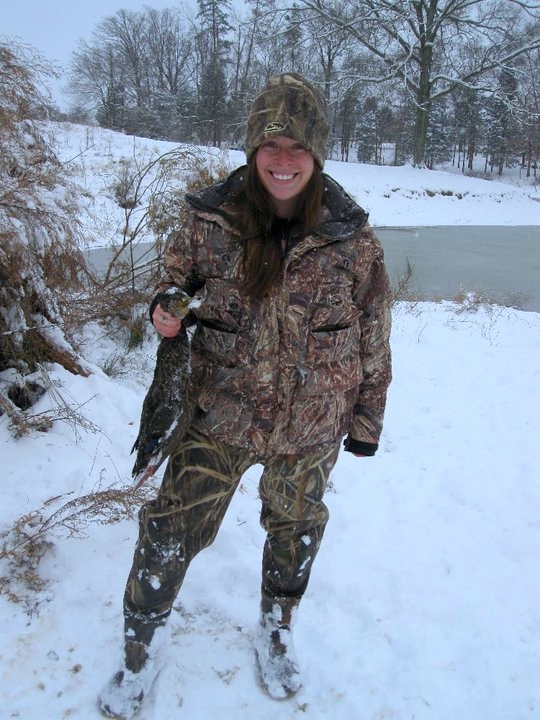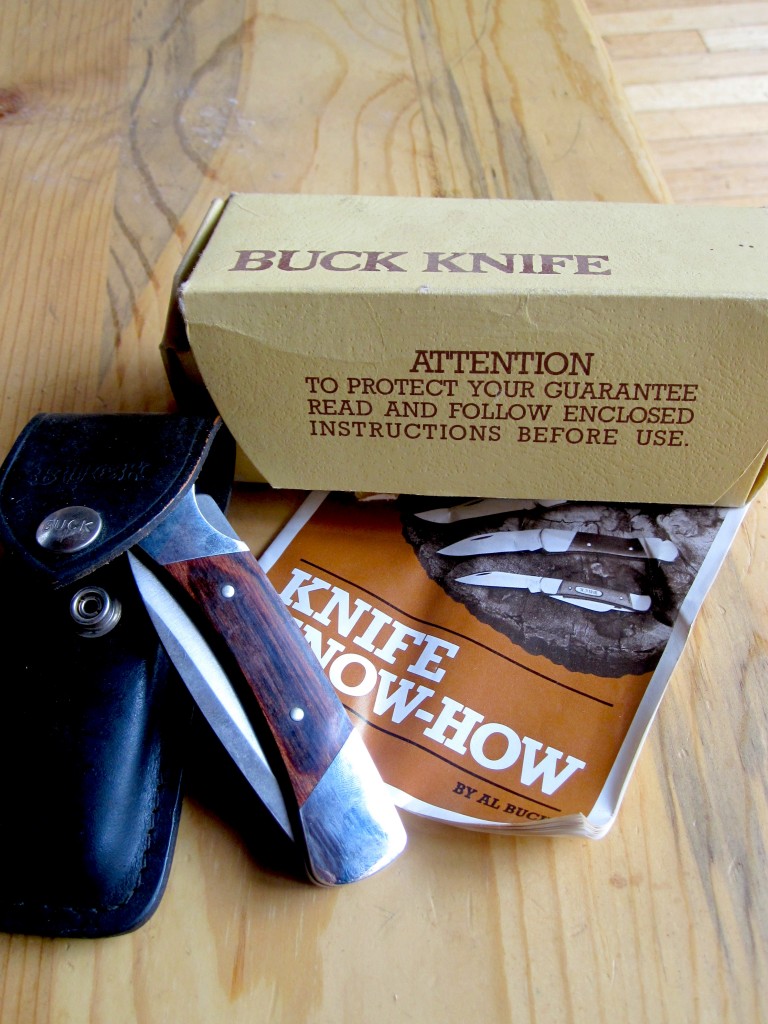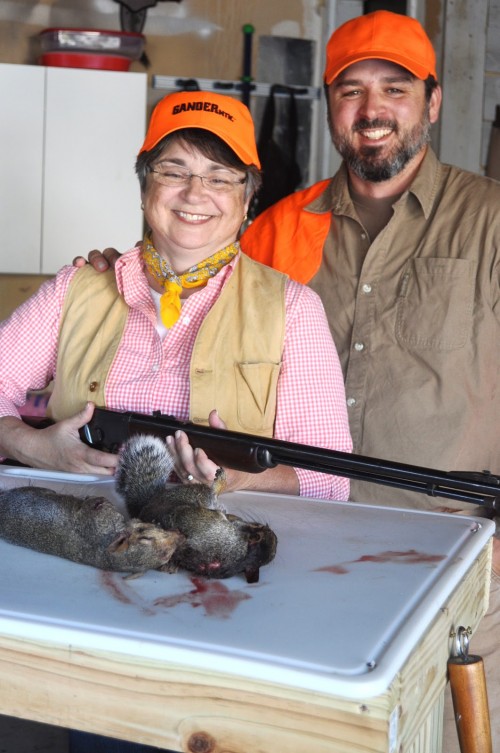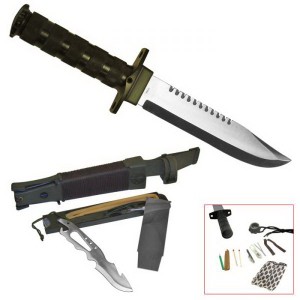 There’s something primal, skillful and undeniably enjoyable about hunting. Weapons are integral elements of a hunter’s repertoire, so to get a perspective on hunting knives, the Cutting Edge spoke with Lisa Jane, better known as the Writing Huntress. Lisa loves hunting, has a writing degree from Niagara University and runs a fantastic blog about her hunting experiences called Hunt Like You’re Hungry, which I highly recommend you check out.
There’s something primal, skillful and undeniably enjoyable about hunting. Weapons are integral elements of a hunter’s repertoire, so to get a perspective on hunting knives, the Cutting Edge spoke with Lisa Jane, better known as the Writing Huntress. Lisa loves hunting, has a writing degree from Niagara University and runs a fantastic blog about her hunting experiences called Hunt Like You’re Hungry, which I highly recommend you check out.
Here’s part of our interview with Lisa.
What do you love about hunting?
I adore the way an opaque stretch of woods magically turns into a different world after sunrise. I love the adrenaline rush that accompanies the sudden appearance of a strutting tom, an elusive deer or highflying duck. I esteem the sense of camaraderie of hunters, the way a community can be formed and held fast simply because the members live to hunt. Most of all, I love hunting because the feeling of providing food to my dinner table is unsurpassed.
What do you hunt?
I hunt anything I can legally kill in legal North Carolinian seasons. Currently, we’re in archery season for deer, which has been unfruitful thus far. I kill deer, duck, goose, and soon to be bear! I’ll try anything twice so let me know what else I should be hunting!
How important is it to have a knife while you’re on the hunt?
Knives are as important as guns or bows during a hunt for many reasons, but the main reason is field dressing. Without a proper knife, especially in North Carolina early seasons, meat can spoil and innards may rupture. Besides field dressing, knives are used constantly, whether they’re needed cutting camo netting for a blind, hewing small branches for a shot lane or for emergencies.
What are the traits of a good hunting knife?
The key characteristic of a good hunting knife is durability. The knife needs to be able to last many seasons, without falling apart in a deer’s belly or getting lodged in a tree. Also, a great blade that can last many sharpenings without losing its razor-esque qualities is absolutely necessary. Personally, I would love a knife that cannot be lost. For some odd reason, I have lost both knives that I had owned previously and adored. If a company can create an ever-lasting, misplace-resistant knife, do let me know!
What advice would you give someone who’s thinking about buying a hunting knife?
 I would advise the person to evaluate what kind of game he or she is buying the knife for. If you’re stalking large game, a small knife intended for rodent dressing will not be practical. Also, knowing what type of game will determine the style of knife. Will you want to cut cleanly through the hide or roughly get through layers of muscle and tissue? Do you need a hooked knife for waterfowl dressing? Personally, I am a big supporter of camo knives and those with non-slip handles. While the latter may be extremely practical, the first may be the primary reason why I can never find my knives once they’re lost.
I would advise the person to evaluate what kind of game he or she is buying the knife for. If you’re stalking large game, a small knife intended for rodent dressing will not be practical. Also, knowing what type of game will determine the style of knife. Will you want to cut cleanly through the hide or roughly get through layers of muscle and tissue? Do you need a hooked knife for waterfowl dressing? Personally, I am a big supporter of camo knives and those with non-slip handles. While the latter may be extremely practical, the first may be the primary reason why I can never find my knives once they’re lost.
What do you think is the best hunting knives?
Mike, my partner in crime, carries a Kershaw Ken Onion Leek, which he states is the “best knife I’ve ever owned.” I have used it for field dressing and I can’t disagree. The knife works extremely well for its size, consistently keeps a sharp edge and the assisted opening is extraordinarily advantageous when one needs a blade in a pinch.
There is also a knife that sits atop my bookcase. It never sees action anymore, but I’m sure it skinned its fair share of animals when my granddad wielded it. The box smells old and the pamphlets within tell a hunting tale that speaks to an era far surpassed. The knife, for all the years it has seen, still functions wonderfully. Maybe that is what should be searched for, a knife that exhibits all of the long-lasting, hardworking technologies of yore.
To read more about Lisa Jane’s (The Writing Huntress) hunting adventures, go to her site Hunt Like You’re Hungry.







